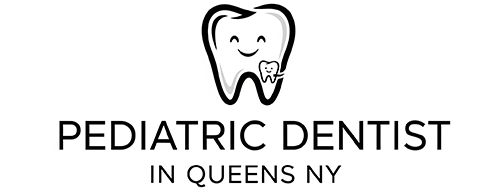Mouthwash is a common oral hygiene product that many people incorporate into their daily routine. It is often marketed as a solution for fresh breath and a way to kill bacteria in the mouth.
However, there is much debate surrounding the effectiveness and safety of mouthwash. In this article, we will explore the pros and cons of using mouthwash, backed by research and expert opinions.
The Pros of Using Mouthwash
1. Freshens breath: One of the main reasons people use mouthwash is to combat bad breath. Mouthwash contains ingredients like menthol and eucalyptol, which provide a temporary freshening effect. It can be particularly useful after consuming strong-smelling foods or beverages.
2. Reduces plaque and gingivitis: Some mouthwashes contain antibacterial agents, such as chlorhexidine, which can help reduce plaque buildup and prevent gingivitis. These mouthwashes are often recommended for individuals with gum disease or those who are prone to dental issues.
3. Reaches areas brushing can’t: Mouthwash can reach areas in the mouth that a toothbrush or floss may miss. It can help dislodge food particles and bacteria from hard-to-reach places, providing an extra level of cleanliness.
4. Provides a sense of cleanliness: Using mouthwash can leave you with a refreshing and clean feeling in your mouth. This can contribute to overall oral hygiene and make you feel more confident about your breath.
The Cons of Using Mouthwash
1. Alcohol content: Many mouthwashes contain alcohol, which can cause dry mouth and irritation for some individuals. Alcohol-free alternatives are available, but it’s important to check the label before purchasing.
2. Disrupts oral microbiome: The mouth is home to a diverse community of bacteria, some of which are beneficial for oral health. Using mouthwash regularly can disrupt this balance and potentially lead to an overgrowth of harmful bacteria.
3. Masking underlying issues: While mouthwash can temporarily freshen breath, it does not address the root cause of bad breath. Chronic bad breath may be a sign of an underlying dental or medical condition that requires professional attention.
4. Potential for staining: Some mouthwashes contain ingredients that can stain teeth, particularly if used excessively or for prolonged periods. This can be a concern for individuals who prioritize maintaining a bright and white smile.
Expert Opinions and Research Findings
Several studies have been conducted to evaluate the effectiveness and safety of mouthwash. Here are some key findings:
- A study published in the Journal of Clinical Periodontology found that mouthwash containing chlorhexidine significantly reduced plaque and gingivitis compared to a placebo.
- However, a review published in the Cochrane Database of Systematic Reviews concluded that the evidence supporting the long-term benefits of mouthwash on oral health is limited.
- The American Dental Association (ADA) suggests that mouthwash can be a useful addition to a proper oral hygiene routine but should not replace brushing and flossing.
- Dr. Mark Wolff, a dentist and professor at New York University College of Dentistry, advises using mouthwash as a supplement to brushing and flossing, rather than a standalone solution.
How to Use Mouthwash Effectively
To maximize the benefits of mouthwash and minimize potential drawbacks, consider the following tips:
- Choose the right mouthwash: Look for mouthwashes that are alcohol-free and contain fluoride. These can help freshen breath and protect against tooth decay.
- Follow the instructions: Read and follow the instructions on the mouthwash bottle carefully. Some mouthwashes need to be diluted, while others require a specific duration of rinsing.
- Don’t overuse: Using mouthwash more frequently or in larger quantities than recommended can lead to adverse effects, such as dry mouth or staining.
- Combine with proper oral hygiene: Mouthwash should complement, not replace, brushing and flossing. Maintain a consistent oral hygiene routine to ensure optimal oral health.
Summary
Mouthwash can be a valuable addition to an oral hygiene routine, providing benefits such as freshening breath and reducing plaque. However, it is important to consider the potential drawbacks, including alcohol content and disruption of the oral microbiome.
Expert opinions and research findings suggest that mouthwash should be used as a supplement to brushing and flossing, rather than a standalone solution.
By choosing the right mouthwash, following instructions, and maintaining proper oral hygiene practices, individuals can make the most of mouthwash while minimizing any potential risks.

Mary – Queens Pediatric Dental Resource Manager. I’m a dental health researcher and parent advocate based in Queens, NY. After struggling to find reliable pediatric dental information during my own child’s dental emergency, I created this resource to help other Queens families navigate their children’s oral health needs.
I curate evidence-based information from leading pediatric dental organizations, peer-reviewed research, and trusted dental health experts. While I’m not a dentist, I’m committed to providing accurate, practical guidance that helps parents make informed decisions.
All content is thoroughly researched and includes proper medical disclaimers directing families to consult qualified pediatric dentists for their children’s specific needs.
